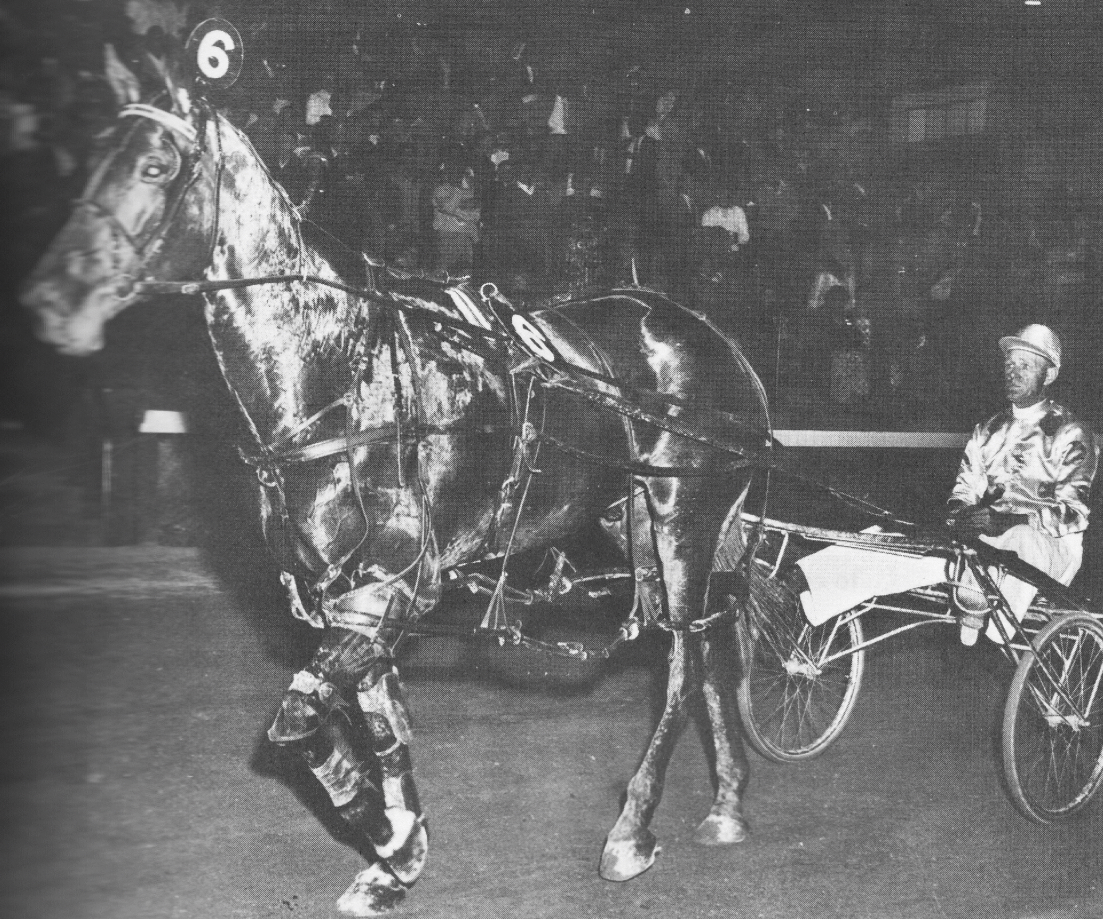This story originally appeared in this week’s edition of Harnesslink Insider.
To get stories like this in your inbox every week, click here.
What was the last time you saw an international verbal spat about harness racing in major newspapers?
In 1961, an Australian driver visited New York with his Inter Dominon runner-up, beat two future Hall of Fame pacers twice, and then, with an eviscerating interview, drew the ire of legendary trainer Del Miller and Yonkers Raceway President Marty Tananbaum.
It started with an invitation to race in Yonkers’s international pace series, a three-race set worth a combined $165,000 – equivalent to about $1.6 million today. Apmat, who finished second in the famed 1960 Inter Dominion to Caduceus, came to the United States in May 1961 with driver/trainer Bert Alley. The gelding, billed a “top Aussie pacer” by the New York Times, made the 15,000-mile trip along with two Kiwi horses for the series. Two races in, Apmat was two-for-two.

The eight-year-old defeated Bye Bye Byrd, a future Hall-of-Famer, by a neck in the series opener on May 4. Apmat collared the 7/10 choice in the final yards to win the $50,000 International Pace in front of 27,803 fans. The gelding, who completed the mile-and-a-half in 3:07, went off at 13-1 despite the media hype. He also beat Caduceus, who was then racing for an American syndicate and would be an inaugural inductee into the New Zealand Trotting Hall of Fame. A week later, Apmat captured the $65,000 Good Time Pace in wire-to-wire fashion, winning the mile-and-a-quarter contest by a length over New Zealander False Step with 26,652 in the stands. Bye Bye Bird finished third, and Alley gave the first taste of his antics to come, saying in the Herald Statesman that “I beat him too easily last week” and had therefore not been worried about the half-million-dollar earner.
False Step then captured the series finale, the $50,000 National Championship Pace, in 3:07.4 for a mile-and-a-half. Bye Bye Bird, through finishing second, finally out-raced Apmat, who was fourth. Despite missing his sweep, Apmat gained the respect of the U.S. press and was named in the top 10 horses of the year by the United States Trotting Association. The gelding continued racing in the U.S. under lease to restauranteurs Julie and Abe Wilsker with Billy Haughton in the bike. Alley, meanwhile, went home to Australia.
There, he unleashed. In an interview with the Sydney Morning Herald, Alley said “Australia is as far above them in trotting as the moon is above earth. I thought I was going to learn a lot by going to America and watching their alleged world champions, but I reckon any Australian of note could teach them a thing or two.” He said Adios Butler’s world record at the Red Mile was illegitimate as the track was measured incorrectly and well short of a mile when raced on the rail. He further hit out at the abundance of gear used and said “I saw two horses in big money races at Yonkers that wouldn’t be good things to win a beginners’ race at Richmond (Race Club).” Clint Hodgins was the only driver he considered first-class.
Most scathing of all, when asked how the top six American horses would compare to Australia’s best, he said “they have not got six good horses.”
The response was swift and fiery. Miller, one of the sport’s most respected horsemen of all time, said this to the Associated Press: “He’s got his nerve. Who the hell does he think he is, popping off about us that way after the way he was wined, dined, and treated in this country? I’ll tell you something, I don’t think he raced his horse so damn smart last week.”
Tananbaum, who was inducted into the U.S. Hall of Fame as an immortal in 2005, was astonished and disappointed. “I am shocked and stunned by the report of Alley’s statement,” he said. “Why, just before he left, he told me, ‘I hope I have the luck to get another great horse to bring me back to America.’ I can’t believe such a wonderful guy as Bert Alley could possibly have made this statement.”
Tony Sisti, in his Inside the Paddock column in Newsday, wrote “Alley, if the wire service quotes are accurate, is an ingrate. Apmat is a good horse but he is not a great one by any stretch of the imagination […] As for Alley, he belongs Down Under, way down under. We hope he stays there. He’s a big nothing.”
Apmat continued racing well in the U.S. until late 1963, and he won his final race in Britain, where he moved the following year. He passed away at 18 in Coonabarabran, Australia in 1972. He earned a total of $260,000 across his career in Australia, New Zealand, the United States, and England.
It doesn’t appear that Alley ever either reaffirmed or rescinded his comments. He continued to be a prominent driver and trainer in Australia well into the 1970s, having been one of Harold Park’s top reinsmen for years. Outside of his sharp-tongued, giant-slaying exploits in America, Alley was a great horseman and earned plaudits from the local colony during his time in the United States. The praise, however, was limited to the abilities in the barn – his diplomacy, in the eyes of the Americans, could have used work.
by Nicholas Barnsdale, for Harnesslink

 USA
USA Canada
Canada Australia
Australia New Zealand
New Zealand Europe
Europe UK / IRE
UK / IRE


